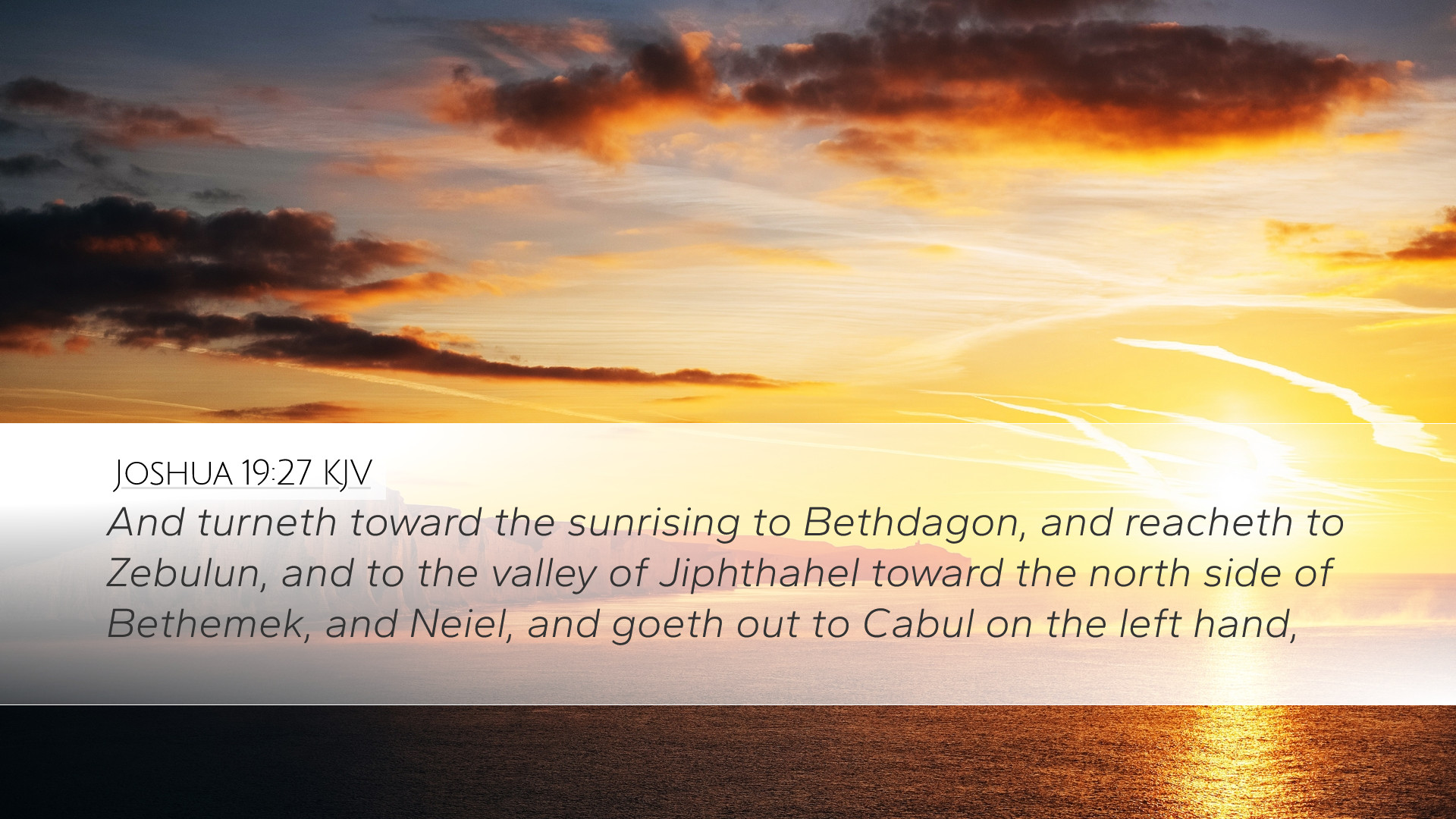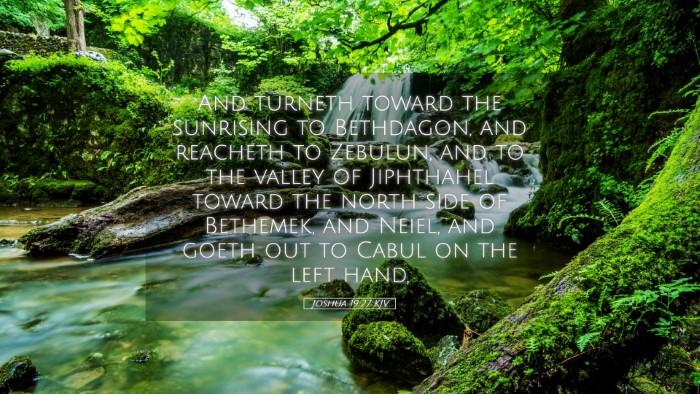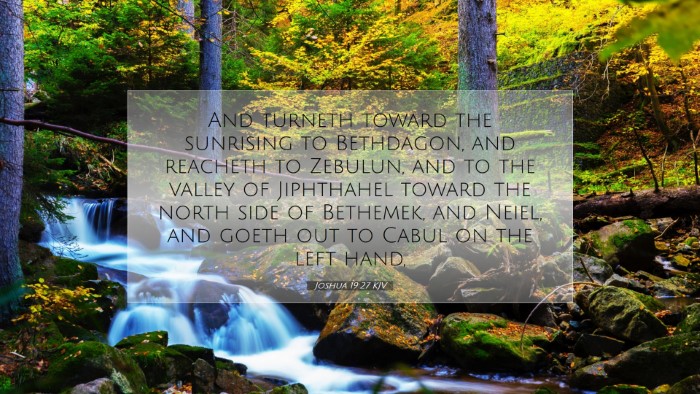Commentary on Joshua 19:27
Verse Text: "And thence it went toward the resident city of Cabul on the left hand." (Joshua 19:27)
Contextual Overview
This verse is part of the allotment of the tribes of Israel, detailing the territory assigned to the tribe of Naphtali. The allocation of land for each tribe serves not only practical purposes but also spiritual significance, emphasizing God’s promises fulfilled to His people.
Historical and Geographical Significance
The reference to Cabul is notable; it is a region in the northern part of Israel, which highlights the geographical boundaries of Naphtali. Albert Barnes emphasizes that the territory, while modest in size, was strategically important due to its location and proximity to key cities.
- Geographical Placement: Joshua 19:27 demonstrates how the land boundaries were meant to reflect the natural divisions of the tribes settled in the Promised Land.
- Cabul City: Adam Clarke notes that Cabul was a once significant city, and its mention indicates the intention behind God's orders for territory distribution, aiming to establish His people in their homeland.
Theological Insights
This verse reflects themes of divine providence and the fulfillment of God’s promises. Matthew Henry articulates how every inch of promised land represents God's faithfulness to His covenant. Despite the tedious nature of territorial divisions, each command was fulfilled, reinforcing the belief in God's unchanging word.
God's Promises and Their Fulfillment
This allocation of land shows how God is true to His word, fulfilling the promises made to the patriarchs. The division reflects both a logistical exercise of governance and a profound theological statement about the constant presence of God accompanying His people.
Spiritual Application
For modern readers and believers, Clark points out that there is a deeper understanding that can be drawn: the faithful God leads His people through uncertain times and distances, setting boundaries and providing a safe haven. This offers encouragement to pastors and those in ministry to trust in God's guidance as they shepherd their congregations.
Lessons for Leaders and Theologians
Joshua 19:27 serves as a reminder for leaders that every decision has implications that echo beyond their immediate context. The strategic choices made within their spheres of influence can help shape the spiritual landscape of their communities.
- Faithfulness in Leadership: Leaders today must be reminded of the sacred trust they carry, ensuring their decisions align with divine principles as demonstrated in the allotments of land.
- Community Boundaries: The significance of geographical boundaries within this allocation elicits thoughts on the importance of communal identity and how leaders must manage these aspects in their ministry.
Conclusion
In conclusion, Joshua 19:27, while a simple geographical reference, encapsulates the rich tapestry of God’s faithfulness, the historical and spiritual journey of Israel, and the responsibilities borne by those called to leadership. Understanding such verses in their broader context provides invaluable insights for pastors, scholars, and anyone seeking to deepen their understanding of God's word.


